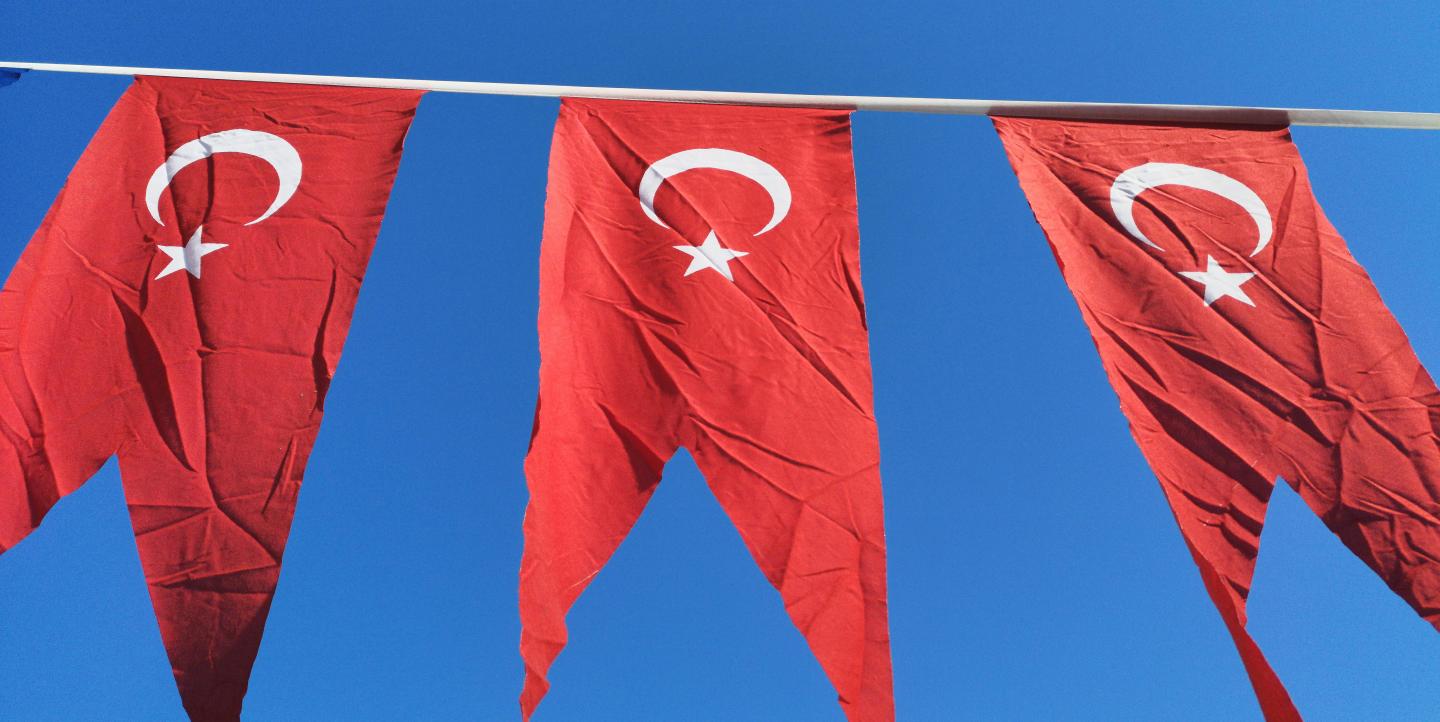The arrest of Istanbul’s mayor, Ekrem Imamoğlu, a direct rival of Turkish President Recep Tayyip Erdoğan, on March 19, sparked massive protests across Turkey. Authorities responded by making thousands of arrests, among them journalists who were covering the unrest.
Less than a week later, Istanbul police raided the homes of several journalists, including AFP photographer Yasin Akgü. The targeted journalists were arrested and later released. Now awaiting trial, they face sentences of up to three years for violating the law on gatherings and demonstrations.
“It gets increasingly difficult to work in Turkey as a journalist. Press freedom has been in persistent deterioration for more than a decade now,” said Özgür Öğret, Turkey representative of the Committee to Protect Journalists (CPJ). “We have judicial pressure to violence on field reporters, threats to unjust imprisonment. We have a variety of press freedom problems in Turkey, and the volume has increased throughout the years.”
Also in March, Turkish authorities arrested and deported BBC journalist Mark Lowen, who had been covering the protests, after detaining him for 17 hours, saying he posed “a threat to public order.” Later, Joakim Medin, a Swedish journalist, was detained on terror charges when his plane landed in Turkey. He remains in prison awaiting trial.
“The deportation of Mark Lowen and the arrest of Joakim Medin can be perceived as a message from the authorities to foreign journalists that they won't be treated any differently than the local reporters,” said Öğret. “Press freedom violations in Turkey, including but not limited to arrests, have become ordinary stories, unfortunately, which is a great sign of the deterioration.”
An increasingly difficult situation
The deterioration of press freedom isn’t new in Turkey, and in Reporters Without Borders (RSF)’s latest World Press Freedom Index the country is ranked 159 out of 180 countries.
“It’s getting harder and harder, year by year, since the Gezi protests [big protests across Turkey in 2013],” said Ilksen Mavituna, editor-in-chief of the independent Açik Radyo. Created 30 years ago, the radio station attracted more than one million daily listeners before it was forced to shutter its FM frequency last October. Turkish authorities rescinded the radio’s license after it ran a program in which it referred to the Armenian genocide.
“It is really hard to guess why now the Turkish Radio and Television Supreme Council has decided to shut us down,” said Mavituna. “We were operating in only legal ways, cooperating and really knowing our boundaries. Auto-censorship is a very hard reality in Turkey. You have to find creative ways to express your opinions.”
Independent media are increasingly rare in the country; RSF highlighted that 90% of national media are now under government control. News of protests has been preserved by a handful of newspapers and channels outside of well-funded pro-government networks.
Another Turkish freelance journalist, who prefers to remain anonymous for safety reasons, works as a fixer for international media outlets that travel to Turkey. They noted a hardening of the stance in recent years. “They are using the accreditation visa process to try to block or cause a delay for foreign media to arrive in Turkey and work on a topic,” explained the journalist. “If you don't catch the exact time of the breaking news, that means that you lose the soul of the news.”
Because of these long delays, the journalist and their foreign colleagues all covered the recent protests without accreditation. “I was so afraid to work without press cards during the protest,” they said, noting that the consequences for local journalists are more severe. “They deport foreign journalists, but if they detain me or arrest me, I'm not sure I can be released that easily.”
Informing in spite of everything
Despite the risks, Açik Radyo continues to report independently via its website and podcasts, thanks to donations from listeners. The station, which employs just under 30 people and works with another 200 volunteers, also initiated legal proceedings in order to regain its FM frequency.
“We had lost a quarter of our audience after the shutdown of our FM frequency. It's a huge number,” explained Mavituna. “We are seeking a new audience online, but we need our FM frequency back. We will need the radio to communicate with each other in case of a big earthquake in Istanbul, for example. Being able to broadcast on air through antennas, not only the internet or GSM [Global System for Mobile Communications], is a question of life and death.”
Narratives put forth by the ruling government, he continued, increase distrust of foreign journalists, further complicating their work. “Some people think that foreign media always works against Turkish people or Turkey. So when we work in the field and when we need a vox pop or street interviews, people say, ‘you’re a foreign TV channel, you are just an enemy of us, you always show us bad.’”
Adding to the concerns is a fear that U.S. President Donald Trump's attitude toward, and rhetoric about, journalists will be adopted and encourage even more repression in Turkey. “I'm pretty sure that our government and our authorities are going to adopt Trump's ideas against the media,” said Mavituna “The future will not be so easy for us, but of course, we will continue to do our work.”
Photo by Engin Akyurt via Pexels.


